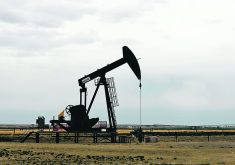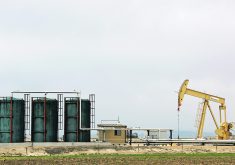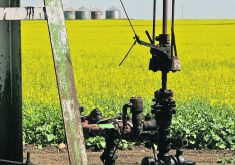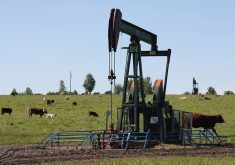Producers say measures to help municipalities recover property taxes won’t help with outstanding surface lease payments
A new provincial program to force oil and gas companies to pay outstanding property taxes may address the issue of municipalities being left out of pocket but it doesn’t help farmers and ranchers dealing with outstanding surface lease payments.
In 2022, 30,000 surface lease payments went unpaid in Alberta, according to Surface Lease Rental Recovery Partners, which assists with recouping such payments.
According to a freedom of information request by the Narwhal magazine, the province has been required to pay more than $72 million between 2010 and 2021 on behalf of the delinquent companies with a fraction of one percent able to be recovered by the government.
Read Also

Environmental farm group has Ottawa’s attention
In 2021, Farmers for Climate Solutions published a report on how Canada should reduce emissions from agriculture. Not long after, the federal government implemented most of the recommendations in the report.
The system can lead to a time consuming and costly procedure for those in the agricultural sector because it could require farmers and ranchers to go through hearings by Alberta’s Land and Property Rights Tribunal (formerly the Surface Rights Board).
Those costs in time and money can be compounded in appeals made to Alberta’s Court of King’s Bench.
The problem has increased since 2015 when Alberta’s last oil boom came crashing down and companies owing money have become insolvent.
But even when farmers such as Wayne Bateman win, they might not receive all that they are owed based on the contract signed.
In its 2020 decision, the Land and Property Rights Tribunal found Bateman had not been paid surface lease payments totalling $13,500 by the insolvent company Lexin Resources from 2015-19.
But the LPRT reduced the award by half because Bateman planted crops — albeit underperforming crops — in the area designated for payment under the terms of the surface lease agreement.
That decision was appealed with the hearing held at Medicine Hat Court of King’s Bench on March 24.
The issue at stake is that farmers and ranchers can be forced by the province to allow access to subsurface minerals, which are owned by the province with provincial regulations and legislation in place to ensure payment, namely section 36 of the Surface Rights Act.
Bateman’s lawyer, Keith Wilson, argued the intent of section 36 was to wield a stick against companies for non-payment by not allowing them access to the site if they failed to uphold their obligations.
“The idea was if the company was not paying and we tell the company you will lose your right to go onto this land if you don’t pay, the company would suddenly go, ‘we’ll pay,’” Wilson told the court. “They won’t care. They’re bankrupt…. It’s not going to solve your problem of non-payment because of insolvencies.”
Wilson highlighted the language in the legislation, noting the lessor “shall” pay costs associated with the lease with no wiggle room for interpretation and the government is obliged to pay the “full payment” if the lessor can’t pay.
“Our view is that the tribunal, with all due respect, has made in the first instance an error of interpretation. They’ve interpreted the legislation as giving them the right to award a reduced payment,” Wilson told the court. “The legislation does not authorize the board — or the tribunal — to reduce the payment.”
Wilson also highlighted that Bateman’s use of the land has reduced the need for weed control by a company that no longer exists.
But he stressed the issue comes down to the legislation and case law and the facts surrounding them, specifically with a case involving Devon Energy, which the LPRT relied on in its decision to reduce the amount owed to Bateman.
That case involved a landowner who had a dry well drilled on his property, which had never produced. The property owner signed a document releasing the company from lease payments. However, the owner had come back to the company for lease payments after it was discovered the well had not been fully abandoned.
“Nowhere in Devon does the court say you can reduce that (lease) amount. Nowhere. It’s not even implied,” argued Wilson, stating in that case no funds were awarded because of those specific circumstances.
“The purpose of the legislation is to make the landowner whole. To make sure they aren’t left out of pocket.”
The decision in the case has been reserved but is expected soon.
















